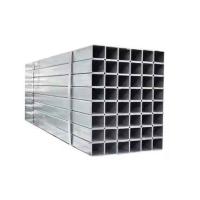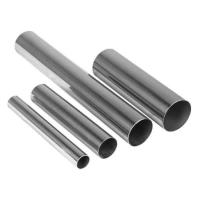Nickel Alloy Forging Sleeves Forged Rings Tube Hastelloy X Energy
and Power Industry
Forging sleeves made from nickel alloys represent a critical
component in various industrial applications, thanks to their
exceptional strength, corrosion resistance, and ability to
withstand high temperatures and pressures. Nickel alloys are chosen
for these applications because of their unique properties, which
include resistance to oxidation and corrosion, good mechanical
strength, and stability across a broad range of temperatures. Below
are the general details surrounding the forging of nickel alloy
sleeves, focusing on aspects like their manufacturing, properties,
applications, and notable nickel alloys used for sleeves.
Manufacturing Process of Forging Sleeves
- Heating: The nickel alloy billet is heated to a specific forging
temperature, typically within a range that ensures the material
remains malleable without compromising its structural integrity.
- Forging: The heated billet is then forged into a sleeve shape. This
can be done using open-die or closed-die forging methods. Open-die
forging is flexible and can produce large pieces, while closed-die
forging offers precision and is suitable for mass production.
- Heat Treatment: After forging, the sleeves are subjected to heat
treatment processes. These can include annealing, normalizing, or
stress relieving, depending on the required final properties. Heat
treatment is essential to enhance the mechanical properties and
corrosion resistance of the nickel alloy.
- Machining: The forged sleeves might require further machining to
achieve the precise dimensions and surface finishes needed for
specific applications.
- Inspection and Testing: The finished sleeves undergo various tests,
including mechanical testing, chemical analysis, and
non-destructive testing (NDT) to ensure they meet the required
standards and specifications.
Properties
- High Temperature Resistance: Nickel alloy sleeves maintain their
strength and resist oxidation at high temperatures, making them
ideal for applications in harsh environments.
- Corrosion Resistance: These materials resist corrosion in both
aqueous and high-temperature environments, thanks to the chromium
and other alloying elements like molybdenum and copper.
- Mechanical Strength: Nickel alloys possess excellent mechanical
strength and toughness, which are enhanced through the forging
process.
Applications
- Aerospace: Used in engines and airframe parts due to their ability
to withstand extreme temperatures and pressures.
- Energy: In power plants, especially those using nuclear or
corrosive fuels, where durability and corrosion resistance are
critical.
- Chemical Processing: Sleeves made from nickel alloys are used in
reactors, valves, and pumps, where chemical resistance is required.
- Marine: For applications exposed to seawater, where corrosion
resistance is paramount.
Notable Nickel Alloys for Forging Sleeves
- Inconel: Known for excellent strength and resistance to oxidation
and corrosion at high temperatures. Common grades include Inconel
625 and Inconel 718.
- Hastelloy: Offers outstanding resistance to strong oxidizing
solutions, making it suitable for chemical processing applications.
Hastelloy C-276 is a popular grade.
- Monel: Particularly resistant to seawater and hydrofluoric acid,
with Monel 400 being a commonly used grade.
- Incoloy: Offers good strength and excellent resistance to
oxidation, carburization, and sulfidation. Incoloy 800 and 825 are
widely used grades for sleeves.
Standards and Specifications
Nickel alloy forgings must comply with various standards and
specifications to ensure quality and reliability. These may
include, but are not limited to, ASTM B564 (for nickel alloy
forgings), ASTM B166 (for Inconel), and ASTM B564 for Hastelloy
products.
In summary, nickel alloy forging sleeves are indispensable in
industries where high strength, temperature resistance, and
corrosion resistance are critical. Their manufacturing process,
from heating and forging to heat treatment and inspection, ensures
that the sleeves can perform under the demanding conditions of
their intended applications.






